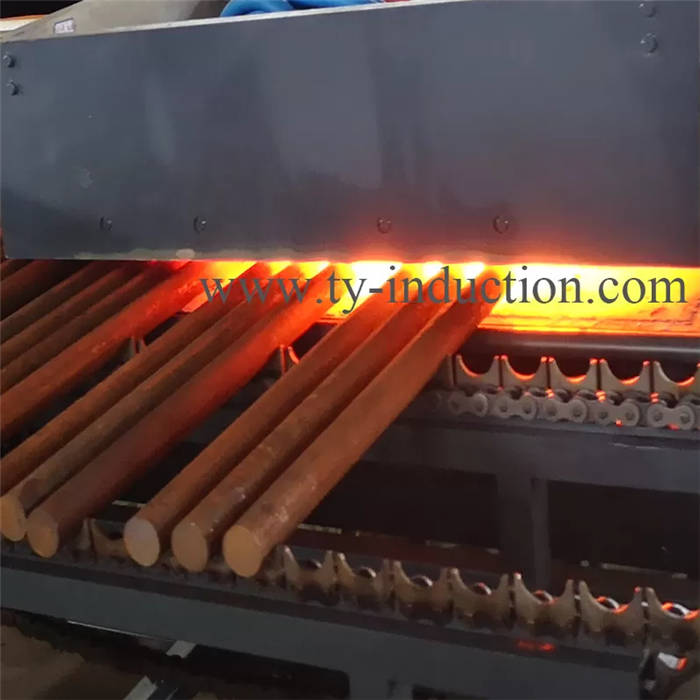How to Select the Right Industrial Autoclaves?
Aug. 31, 2024
When it comes to industrial autoclaves, the selection process can be as complex as the machinery itself. These powerful devices are crucial for sterilization, curing, and composite processing across various industries including pharmaceuticals, food technology, and aerospace. Choosing the right autoclave can not only impact product quality but can also affect operational efficiency and compliance with regulatory standards. Here's a comprehensive guide to help you make an informed decision.
Identify Your Needs
The first step in selecting the right autoclave is to identify your specific needs. Consider the following questions:
- What materials will you be processing? Different materials require different temperature and pressure settings. Understanding the specific requirements will guide you towards the right type of autoclave.
- What is the volume of production? A high-demand production line will need an autoclave that can handle larger loads, while smaller operations might benefit from compact units.
- Are there any regulatory standards to meet? Certain industries are bound by strict compliance guidelines. Make sure any chosen autoclave is capable of maintaining these standards.
Evaluate Different Types of Autoclaves
Autoclaves come in various types, including batch, continuous, and tower models. Each type has its own advantages:
- Batch Autoclaves: Ideal for smaller-scale operations, allowing for flexibility in processing different loads. They are excellent for labs or facilities that require frequent changes in operational tasks.
- Continuous Autoclaves: Designed for high-volume production, these models maintain a steady flow of materials through the sterilization process. They are generally more cost-effective for large operations.
- Tower Autoclaves: Particularly good for materials that require lengthy sterilization processes due to the tower's extended chamber. They are highly efficient for specific applications.
Consider the Size and Capacity
After determining the type of autoclave that best suits your needs, the next step is to consider the size and capacity. The internal dimensions must accommodate your largest items, allowing for adequate steam circulation and avoiding overcrowding.
It’s also wise to consider future growth. Selecting a model that offers slightly more capacity than your current needs can provide flexibility for increased production demands.
Energy Efficiency and Technology Features
In today’s economically driven world, energy efficiency is a key consideration. Modern autoclaves are equipped with technology that enhances performance while minimizing energy consumption.
Further reading:What Benefits Do Stainless Steel Fermenters Offer?
How to Choose the Right Poultry Feed Processing Machine for Your Needs
Top 5 Flour Milling Machines: 150TPD-200TPD Guide
Essential Guide to Pellet Coating Machines Explained
How Can You Maximize Efficiency in Your Fermenter Tank Operations?
Top 5 Corn Flour Machines for Your Business Success
Choosing the Best Industrial Oil Heater in 2024
Some helpful features include:
- Microprocessor Controls: These systems offer precision and versatility, allowing for customizable cycles to suit a range of applications.
- Automatic Door Systems: These contribute to safe and efficient loading and unloading while minimizing the risk of contamination.
- Vacuum Systems: Essential for eliminating air pockets, ensuring a more thorough sterilization process.
Maintenance and Support
Maintenance is critical in prolonging the lifespan of your autoclave and ensuring consistent performance. Before making a purchase, investigate the manufacturer’s maintenance and support services. A reliable supplier should offer:
- Comprehensive User Manuals: Clear guides can help users operate the autoclave properly and troubleshoot issues.
- Regular Maintenance Contracts: Many manufacturers provide contracts for regular inspections and maintenance checks, reducing downtime.
- 24/7 Customer Support: Quick access to support can be invaluable during unexpected breakdowns.
Budget Considerations
Finally, consider your budget. Industrial autoclaves can be a considerable investment, and while it’s tempting to opt for the least expensive model, this decision could have long-term repercussions. Evaluate the total cost of ownership, including:
- Initial purchase price
- Operational costs such as energy and water usage
- Maintenance fees
Sometimes investing a bit more upfront can pay off in lower operational costs and less downtime in the future.
Conclusion
Choosing the right industrial autoclave is a multifaceted process that requires careful consideration of your operational requirements, types of available autoclaves, size, energy efficiency, maintenance, and budget. By taking the time to become informed, you can ensure your selection will meet both your immediate needs and support future growth. After all, the right autoclave is not just a piece of equipment; it’s an investment in your operation's efficiency and quality.
If you are looking for more details, kindly visit Industrial Autoclaves, China Fast Sintering Furnace Wholesaler, Vacuum Furnace Replacement Parts.
Further reading:Unlock Efficiency: Solve Your Milling Challenges with 100TPD-150TPD Flour Milling Machines!
Industrial Cold Water Machine: Top 5 Benefits for Your Business
Advantages of Low-Fouling Finned Tube Exchangers in Heat Transfer Efficiency
Transform Your Projects: The Ultimate Acrylic and Wood Laser Cutting Machine to Overcome Cutting Challenges!
Are You Overlooking These Maintenance Tips for Your Air Compressor?
Essential Small Brewery Equipment: Boost Your Brewing Success!
Diesel Fired Steam Boiler vs. Electric: Which is Best?
191
0
0
All Comments (0)
Previous: 4 Tips to Select an Eco-Friendly Home Heating Solution
Next: Key Questions to Consider When Choosing an Energy Efficient HVAC System
Related Articles
If you are interested in sending in a Guest Blogger Submission,welcome to write for us!







Comments